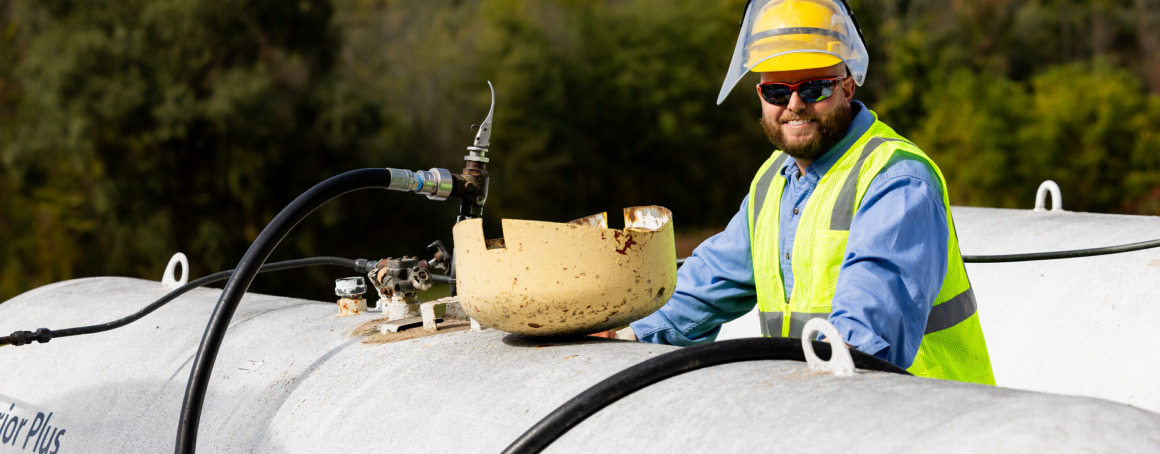Propane Vapor System Safety

It is highly important that commercial employers know the basics of propane vapor safety and train their employees on this topic. The Propane Education and Research Council (PERC) has provided the following information to guide employers in commercial workplaces on this subject.
Running Out of Gas
Running out of gas is a serious safety hazard.
- If an appliance valve or gas line is left open when the propane supply runs out, a leak can occur when the system is recharged.
- Air and moisture can get into an empty or depleted storage container, which can cause rust. This can decrease the concentration of the odor of propane, making it more difficult to smell.
- If your propane container runs out of gas, any pilot lights on appliances will go out. This can be extremely dangerous.
- If you suspect your propane supply has run out, alert the person in charge at your organization immediately.
Testing the System for Leaks
Any time there is an interruption in your propane supply, the piping system must be tested for leaks. Any organization using propane should have a person who is responsible for contacting
the propane supplier should this occur. Contact this person, or contact your propane supplier to test the piping system for leaks before turning the gas back on. If your state allows your organization to reinstate gas service internally, ensure that a leak check is performed in accordance with NFPA guidance on the entire system when interruptions in service occur. If your state does not allow or you do not have the capabilities internally, contact a qualified professional such as your propane supplier.
Avoid Running Empty
Set up a regular delivery schedule with your organization’s propane supplier. Most suppliers can monitor your container’s level remotely to ensure it is adequately filled. Periodically check the fuel gauge on your container to ensure you don’t run out of propane. Self-service customers should check fuel level on the gauge and arrange for fuel delivery when the gauge indicates 35 percent or less in the tank.
Pilot Lights
Pilot lights are small, constantly burning flames inside some (not all) propane appliances or equipment. The pilot light is an important safety feature, that ignites the main burner when
needed. Equipment without a pilot light usually has some form of electronic ignition.
Important Guidance for Employees When a Pilot Light Goes Out
If your organization uses equipment that operates with a pilot light, it is your responsibility to ensure employees are properly trained on how to relight pilot lights, according to the equipment manufacturer’s guidelines.
If employees are not trained, contact a qualified professional to relight pilot lights on propane appliances and equipment.
To learn more about propane vapor safety, check out Safety Articles | PERC (wpengine.com).
"*" indicates required fields


